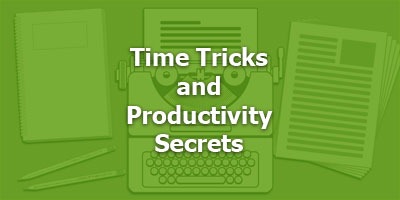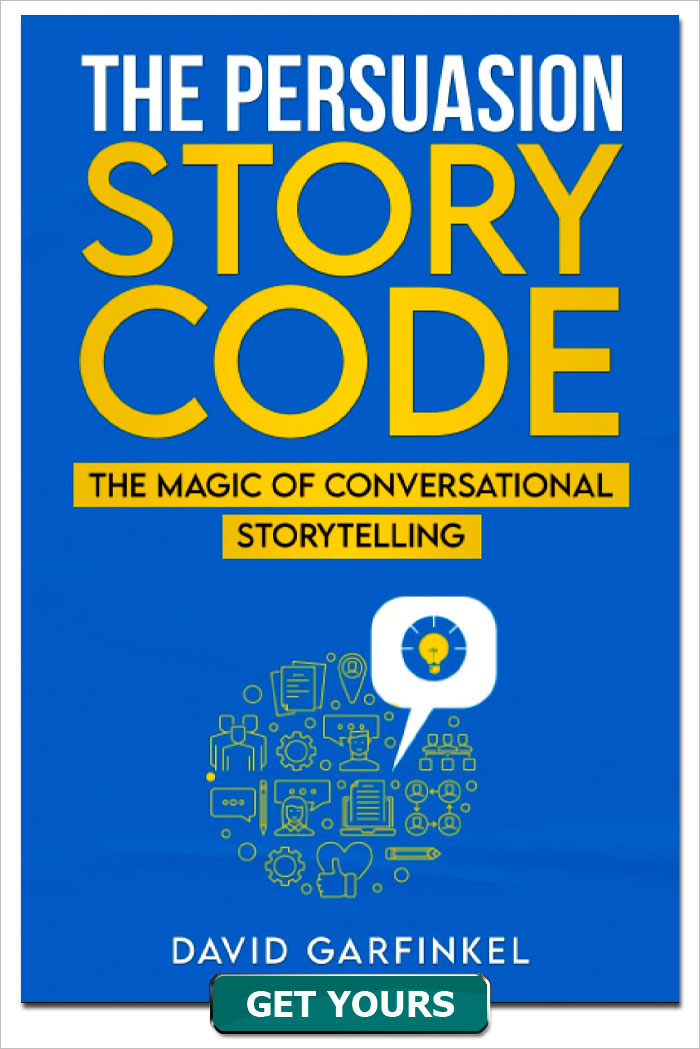Time Tricks and Productivity Secrets for Copywriters from Robert Updegraff
Published by: David Garfinkel on 04-27-2020
Tweet
Have you ever given up on time management, because every technique and system you’ve tried just doesn’t work for you?
If so, it’s not your fault.
Time management systems don’t work for creative people in most cases. But in our second Old Masters show with Robert Updegraff, we’re going to show you an approach that does.
It’s from a 1958 book “All the Time You Need” by Robert Updegraff. It’s out of print, but you might be able to find a copy on Amazon.
Thanks to Copywriters Podcast guest expert, master copywriter David Deutsch, for telling me about this book many years ago.
What’s great about this book is it shows you how to solve the biggest problems that rob you of time, and rob your time of its potential to be productive for you.
I’ve used all of the ideas here, but I don’t use all of them all of the time. That would be impossible. You’d spend more time using his time-maximizing techniques than getting anything done.
I can tell you:
- they work, and
- it’s better to use one or a few than to try to use all of them perfectly
What’s good about them is these are all biased towards practical creative people, including of course copywriters and entrepreneurs.
Four parts to what we’ll cover today
- The two dimensions of time
- The four enemies of clock time
- The four enemies of energy
- Using your unconscious mind to supercharge your creativity and productivity
The two dimensions of time
Productivity is about how much you can produce in any given amount of time.
In one hour, if you are sleepy, distracted, pissed off and would rather be or be doing something or somewhere else, you probably won’t be all that productive.
But… if you are focused, and excited – even on fire about something you’re doing, during that same period of 60 minutes you can get a lot better stuff done. Maybe even more than most people get done in a full day.
Two dimensions: calendar/clock time
energy
The Four Enemies of Clock Time
1. Procrastination
Updegraff’s method for overcoming procratination:
- if you’re stalling on something, take a moment to visualize what it is that you need to do that you’ve been putting off.
- then, decide: to do it later, or never to do it.
And if you decide to do it later, set a specific time when you plan to do it, and stick to it.
2. “Sometime-itis”
Saying you’ll do something “sometime” is usually no better than procrastination.
3. Condoning inaction
This means being vague about when you’re going to do something you need to get done but don’t want to do right now.
Updegraff says that some people will spend more time coming up with excuses why they didn’t do something than the time it would have taken to do the thing they’re making excuses about
4. Regretting
Spending time dwelling on what might have been or what you might have done differently can really eat into your work productivity if you spend too much time on it.
Updegraff says, “The person of mature mind knows every day spent in regretting is a day wasted. When an experience is passed, it is beyond recall. We can learn from it, but we cannot correct it.”
Yes, there are lots of exceptions to these four assertions. Meaning, sometimes you won’t be able to make them work the way you’d like.
But bringing them into your work process can help you be a LOT more productive when you’re writing or coming up with new ideas.
Defeating the Four Enemies of Energy
Energy is the second dimension of time, particularly when it comes to productivity, in Updegraff’s view of things. I happen to agree with him.
Scott Adams talks about this in one of his books, too, but in a different way.
Here are the four enemies Updegraff id’s:
1) Frustration
“Our frustrations burn our energy three or four times faster than it is consumed by our work.”
His point is not to avoid frustration, but just expect it. And don’t overreact. Don’t wallow in it. Sometimes, when you’re really frustrated, go do something else for a while. Come back to it and your unconscious mind may have solved the problem your frustration was causing.
2) Irritation
“A brief flash of impatience, exasperation, or even anger is sometimes highly beneficial in that it stirs us to decision or action.”
But again, wallowing in irritation does nobody any good. And it certainly hijacks your attention and your energy from creative productivity.
3) Impatience
This is interesting. Updegraff sees impatience as being stalled, stuck, pinned to the wall. And slowly seething that something’s not ready or getting done fast enough.
He says, “Keeping busy at something — almost anything — is a simple antidote for impatience.”
4) Worry
My point of view is that some worry is good. Like with a launch, for example. You want to think of everything that reasonably could go wrong, and then take steps to prevent those things from happening. But then, be done with it.
The kind of worry that Updegraff sees as an energy drain is obsessive worry. If you do that and you can find a way to stop doing that, you’ll probably see a dramatic increase in your creative productivity.
He says, “Worry saps the spirit and drains the nervous system at an appalling rate.”
Partnering up with your unconscious mind
I’ve used this one a LOT. It always works, as long as you don’t rush it. In my experience.
Updegraff suggests you use the unconscious mind for:
- solving problems
- developing ideas
- formulating plan
Here is how:
- Write down the problem you want to solve, or the kind of idea you want to develop and how you’ll use it, or what you’ll be creating a plan for
- Ask your unconscious mind for a solution. Give it a deadline. At least a few hours or overnight.
- After you do this, forget about it for a while. Do something else. Don’t consciously think about the problem. Let the unconscious mind do its magic.
- The idea will come to you. Possibly when you least expect it. Have some way to record it, whether audio or paper and pen, nearby as much as possible.
- You get better at this, the more you do it.
--
Summary:
- Two dimensions of time: clock/calendar time, and energy
- Four enemies of clock time: procrastination, sometime-itis, condoning inaction, regretting
- Four enemies of energy: frustration, irritation, impatience, worry
- Enlist your unconscious mind to help you with creative jobs
All the Time You Need, by Robert R. Updegraff (used copies):
https://www.amazon.com/All-time-you-need-greatest/dp/B0007E2IQ8
Keywords: productivity and time hacks









